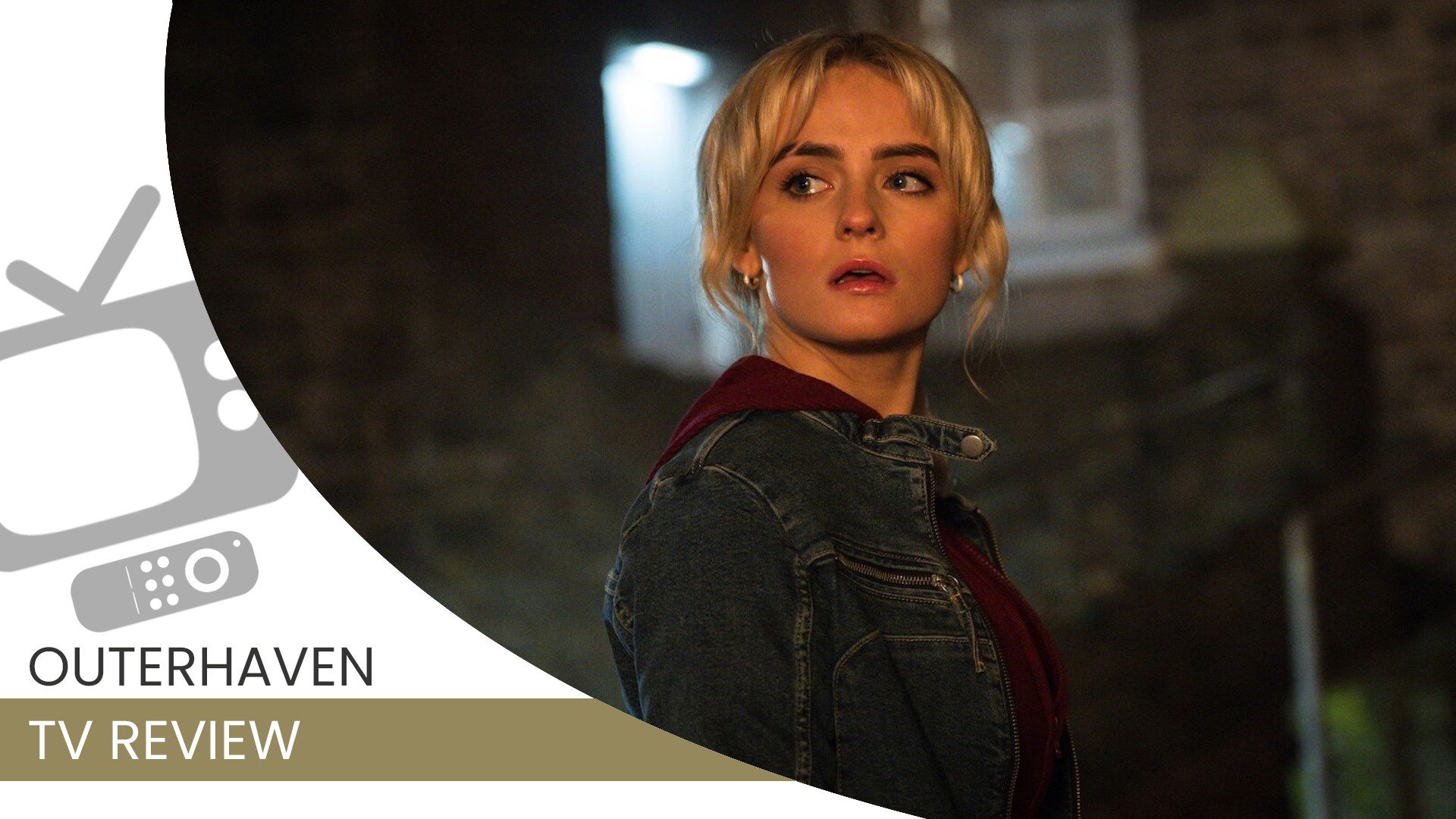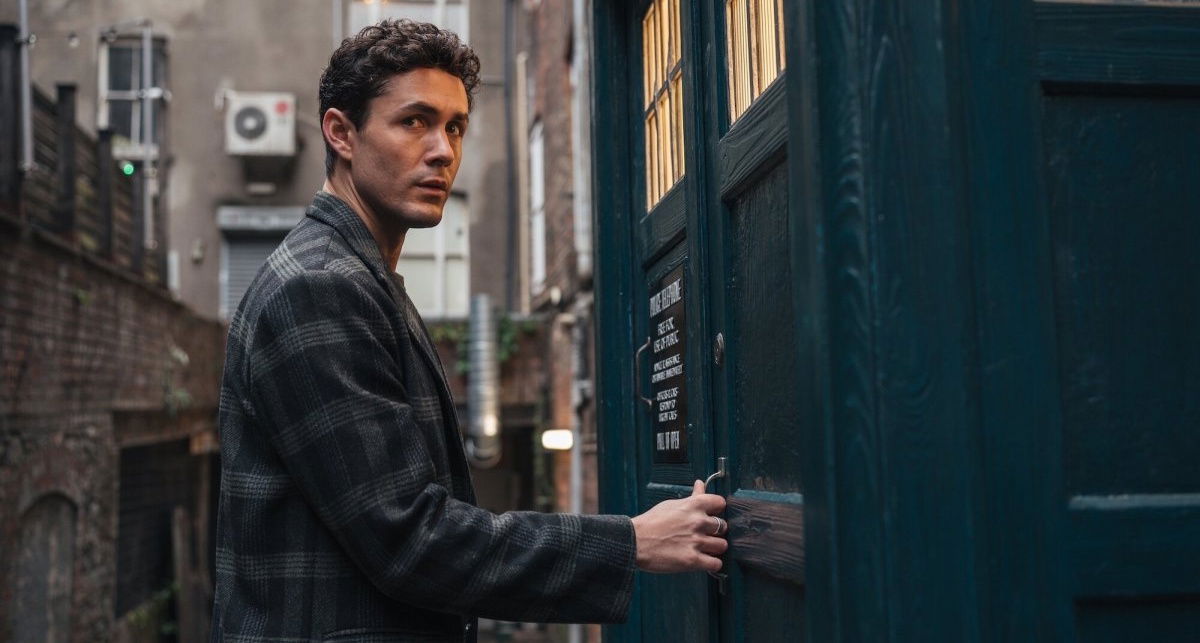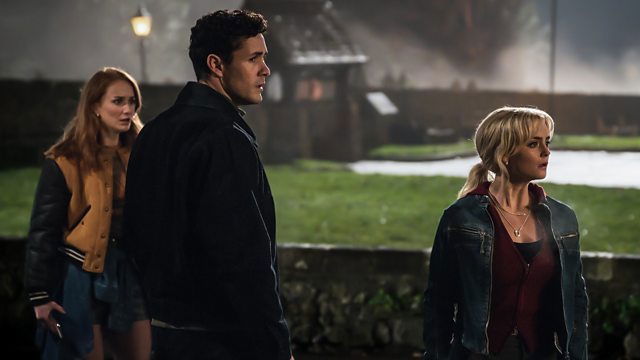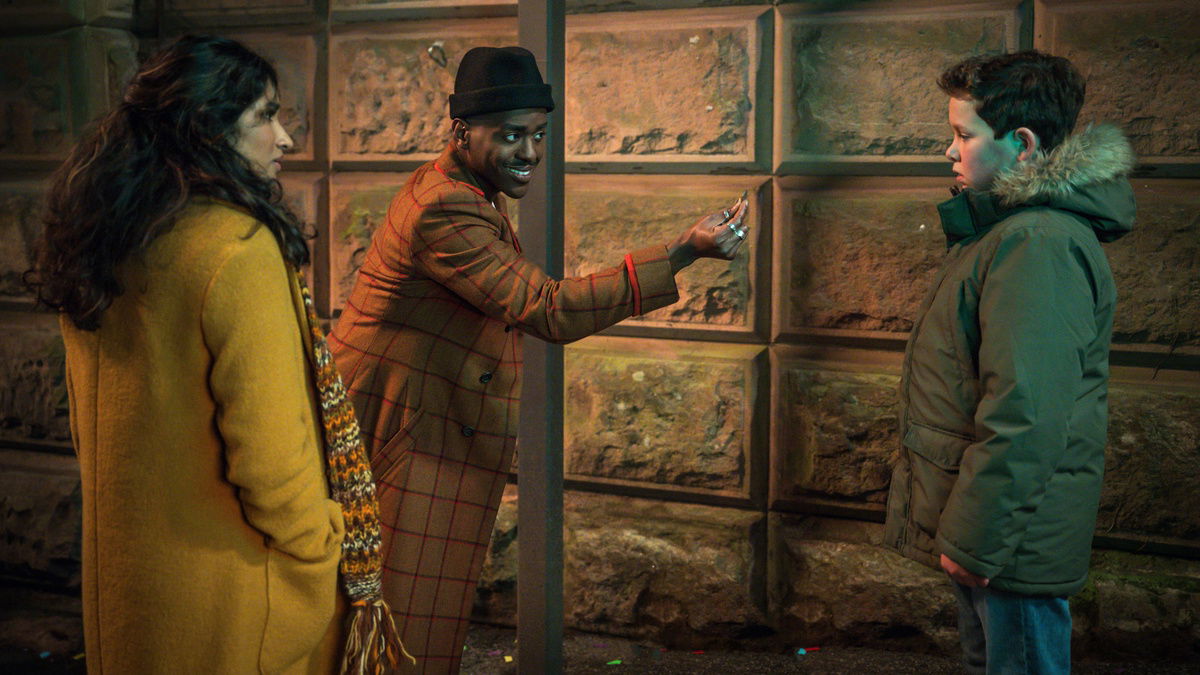I remember the last season of Doctor Who, and two specific episodes that made me feel truly upset. The first was “74 Yards,” and the second was “Dot and Bubble.” Those two episodes, once I got through them, left me feeling depressed, angry, and confused about why they were even made. Sure, there were other episodes last season I didn’t like, but those ones made me feel bad in the worst way, which isn’t what this show is meant to do. Fast forward to now, and my Doctor Who: Lucky Day review will reveal that those feelings came back once it was over. Much like Ruby Sunday, I’m not okay.

Before I break down why this episode angered me, let me recap it briefly. After a stop in 2007 with The Doctor and Belinda, where they meet a young man named Conrad and give him a “lucky coin,” we jump back to the present (present-ish?) where we reconnect with the one and only Ruby Sunday. We all knew she’d return this season. We just didn’t know how.
After meeting Conrad and discussing her adventures on his Doctor Who podcast, the two start dating, and Ruby is finally getting to live her life away from The Doctor and his adventures.
However, as you might expect, things start to go wrong when an alien that connects Conrad and Ruby, the Skreet, apparently targets Conrad. Natural tension builds, U.N.I.T. is called in, and it all seems like a big monster fight is about to kick off. And then the shoe drops.
It was all a hoax, engineered by Conrad to “expose U.N.I.T.” for supposedly lying to the public. That’s right. The entire thing was a fake news and conspiracy theorist plot with Ruby and Kate caught in the middle of one man’s misguided crusade.
We all know that Doctor Who is made by the BBC, which is fine. It’s their series, and it has been going for over 60 years. But this episode felt directly aimed at the United States and at certain real-world figures who use podcasts and social media to build up radical followings while profiting from it. It made it seem like they care little about the damage they cause.
I don’t have a problem with stories that take on those topics when they’re handled properly. Unfortunately, I don’t believe this one was.
You might ask, “Why wasn’t it handled properly?” Simply put, the episode went all in on its critique without doing justice to its characters or to those dealing with these issues in real life.
Take Ruby Sunday. I really liked Ruby in the first season, outside of the twist with her biological mother, and I was glad she was back and having a post-Doctor adventure like other companions have. But due to the story’s sudden shift and the reveal of Conrad, Ruby came off as a fool. Her struggle with PTSD, caused by everything she’s been through, was brushed aside. Her closing monologue about needing to “disconnect from it all” upset me, because she had been in such a good place at the end of her season.
She had her mom, her adoptive mom, her grandmother, and now a new relationship, something she clearly needed. Then suddenly, she’s “done with it all?” Why would this Ruby want to leave behind the very people who supported her the most? I loved the scenes with her moms talking about her new boyfriend. I wish we had more of that.
As for Kate and U.N.I.T., I found it unbelievable that Conrad and so many others would doubt them, given everything that’s happened in the UK and the world just in the last couple of Doctor Who seasons. Yes, I understand the point being made, that there are people aligned with certain fringe movements who refuse to believe the truth. But this was exaggerated to the extreme. I was annoyed with every second Conrad spent demanding that Kate “reveal the truth.” He gets attacked by a Skreet, denies that he almost died, then gets his arm bitten off and still doesn’t admit he was wrong.
That led to, in my opinion, the worst scene of the episode, when The Doctor finally showed up. Time travel aside, did he really not realize the boy from the past would be the one who later torments Ruby? His message was powerful, yet deeply frustrating. Why? Because once again, Conrad denied it all. He even nearly spoiled one of my favorite MythBusters quotes, and just when it seemed like he might face the consequences of his actions, Mrs. Flood swoops in and frees him.
That moment wasn’t just frustrating. It felt dishonest to the audience. After everything Conrad put us through, the show had a golden opportunity to say, “See? The bad guys do get exposed eventually.” Instead, it backed off and reminded us that life doesn’t always work out that way.
Now let me compare this to one of my favorite Doctor Who episodes, “Rosa.” That episode also tackled real-world politics, specifically racism, and did it with power and subtlety. It felt especially poignant with the rise of the Black Lives Matter movement in the years that followed. The episode didn’t rewrite history or force its message. It used the real story of Rosa Parks’ bravery to remind us why standing up to injustice matters. Her legacy was even honored in the episode by having a star system named after her. It was beautiful and still resonates with me today.
In contrast, Lucky Day felt like a reminder that, especially in the U.S., life is increasingly difficult because of people like Conrad. The real-world versions of him. People are overwhelmed by misinformation, harmful policies, and consequences that hit innocent people hardest. That reality hurts. And when I turn on Doctor Who, or any quality sci-fi show, I’m often looking for an escape from all that. I didn’t get that this time.
I don’t fault the BBC for wanting to call out certain behaviors, especially when others around the world are doing the same. But Doctor Who is unique because it whisks us away to all corners of time and space. It gives us a break from the weight of reality, even if only for an hour. We need that now more than ever.
And the irony? Even if people like Conrad saw themselves being criticized in this episode, they wouldn’t care. They would dismiss it, call it propaganda, and keep doing what they’ve always done. So what was the point?
As I end my Doctor Who: Lucky Day review, I do apologize for being so emotional. But for me, there’s nothing more frustrating than when a show suddenly swerves into politics without making sure the message fits the narrative. And without ensuring it will have a lasting impact. Black Lightning handled social commentary beautifully across multiple seasons. Babylon 5 explored misinformation and conspiracies long before real-world events caught up. In contrast, the next episode of Doctor Who will likely be about a Spider God, and this one will probably never be mentioned again.
Doctor Who Lucky Day Review
“Lucky Day” was the BBC’s way of calling out the current situation in the United States, Russia, and other countries that are currently flooded with lies. While I’m all for the truth being told loudly and proudly, doing it this way through “Doctor Who” came off as forced, annoying, and belittling to those who do want an end but don’t have a U.N.I.T. to help them.
Pros
- Ruby + Kate
Cons
- Making It Seem Like Ruby Can’t Have A Life Outside The Doctor
- Conrad
- “Fake News” Storyline
- No True Advancement With The Belinda Storyline
- Mrs. Flood Ending
-
Doctor Who Lucky Day Review






